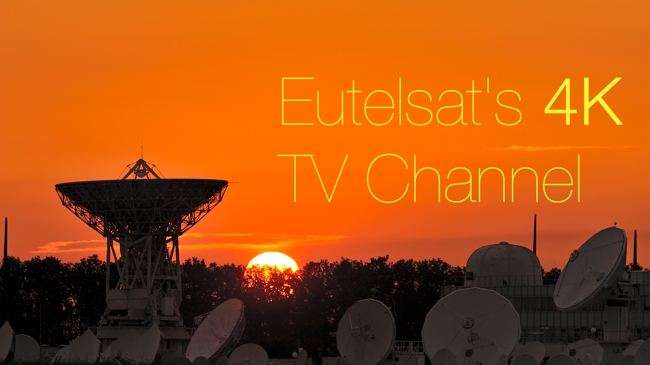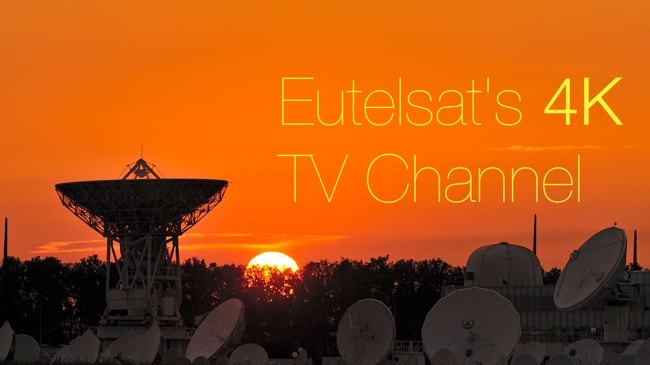
 Eutelsat
Eutelsat
European satellite operator Eutelsat launches the world's first 4K channel
What's changed during the course of January's CES is that the mass adoption of 4K television has changed from "if" to "when", if not "soon".
Before the show, there were just a few ultra-expensive ultra-definition sets that were technology showcases, albeit ones that you could have in your home if you didn't mind spending the budget for your next Audi on living-room AV equipment.
But now, even though current prices remain an issue, 4K looks a dead cert, as more and more consumers actually see the difference it makes, and as virtually all TV manufacturers see it as an essential step on the rocky path to long-term survival.
A big development
And almost every day, there's another key reason to suspect that 4K is going to happen in the near future. Here's a big one: the first 4K satellite channel.
Eutelsat has launched a dedicated 4K "demonstration" channel for content filmed in 4K, describing the high-resolution format as a "big leap forward in the immersive viewing experience".
The key thing about the new channel is that it will give everyone a chance to see 4K TV. Eutelsat put it like this: "Eutelsat's new channel is designed to benefit all actors in the broadcasting chain who want to acquire expertise in 4K, including production companies, pay-TV operators, rights owners and TV set manufacturers".
The new 4K channel will operate in progressive mode at 50fps, and the images will have a resolution of 3840x2160. It will be encoded in MPEG-4/H.264 and transmitted at 40 Mbit/s. Compression is provided by ATEME, who make encoding devices for the broadcast industry.
HEVC
It seems likely that when 4K satellite transmission becomes mainstream it will move to the new H.265 (HEVC) "standard" which provides denser compression and will allow more channels to be sent from the same transponder.
No details are given of set-top equipment needed to receive the 4K channel.
Just as a side note to the 4K announcement and arguably as significant: this is the first time any broadcaster has provided a progressive stream with a resolution higher than 720p!
Tags: Technology


Comments